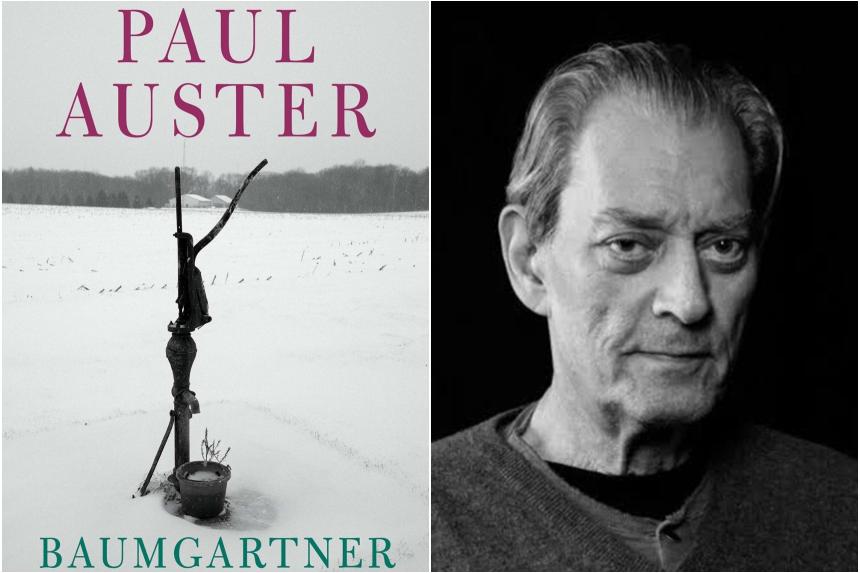Baumgartner
By Paul Auster
Fiction/Faber/Hardcover/202 pages/$34.42/Amazon SG (amzn.to/3H33w7K)
4 out of 5
In American author Paul Auster’s early novel In The Country Of Last Things (1987), a young woman called Anna Blume finds herself trapped in a nameless post-apocalyptic city where everything is falling apart.
She writes, in shrinking handwriting in a notebook that is running out of space, “the end is only
imaginary, a destination you invent to keep yourself going, but a point comes when you realise you will never get there…You stop, but that does not mean you have come to the end”.
Her fate in In The Country Of Last Things is left open-ended, but the name Anna Blume resurfaces in Auster’s latest novella Baumgartner, a slim meditation on age and grief.
Auster, who at 76 is considered one of America’s greatest living novelists, has ranged over a storied career from the vertiginous experimentation of The New York Trilogy (1987) to the forking paths of 4 3 2 1 (2017), his Man Booker Prize-shortlisted epic which imagines four alternate lives for the same character.
Similarly, the Anna of Baumgartner might be an alternate version of the Anna of In The Country Of Last Things. In harking back to his early work of eschatology, Auster marks Baumgartner – his first fiction published since he was diagnosed with cancer in December 2022 – as a novel of last things.
Sy Baumgartner is a philosophy professor at Princeton University in his 70s, on the verge of retirement. He lives alone and is haunted by the death of his wife, the aforementioned Anna, in a seaside accident a decade ago.
In a sense, this is also a post-apocalyptic novel, but on the most private scale. Baumgartner is moving through the aftermath of what he considers to be his true life, the one he shared with Anna.
Searching for a trope with which to metaphorise his grief, he alights upon phantom limb syndrome: Anna’s death left him a “human stump”, but even a decade later, his missing limbs flare to life and cause him unbearable pain.
Yet there remains a surprising amount of afterlife to be lived. He fumbles a marriage proposal to a younger divorcee; he orders piles of books, which he never reads, to keep up a flirtation with an attractive delivery worker; he begins putting together a selection of Anna’s poems, which she never sought to publish while alive.
Very little actually happens in this novel, which potters on with painstaking slowness interspersed with bouts of obsessive detail, such as Baumgartner’s fascination with watching a robin eat worms in the yard.
Moments of high drama include a bad fall down the stairs or learning over the phone that his cleaner’s husband has accidentally sawn off his own fingers.
The stagnancy of Baumgartner’s present is tempered by looping flights into the past via his memories, Anna’s writings and even, at one point, his family history – in a metafictional wink typical of the author, Baumgartner’s mother’s maiden name is revealed to be Auster.
None of this is likely to appeal to a reader coming fresh to Auster’s work. Nor, for those who have traversed the author’s extensive oeuvre, will it supply anything like satisfactory closure, in the way that Cormac McCarthy, another American literary titan, managed with his magisterial double bill, The Passenger and Stella Maris (2022), ahead of his death in June 2023.
As the novel’s deliberately ambiguous ending suggests, however, what is often surprising about last things is that they have lasted so long, and will keep on lasting. You stop, but that does not mean you have come to the end.
If you like this, read: Old God’s Time by Sebastian Barry (Faber, 2023, $23.52, Amazon SG, go to amzn.to/3S91JEF). Former policeman Tom Kettle is settling into retirement on the Irish coast, visited by memories of his wife and children, when two ex-colleagues show up to ask him about a decades-old murder.

